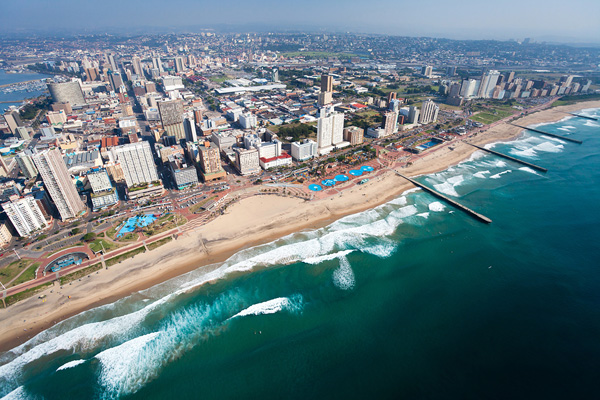Tips for Expats Driving in Durban
Summary: Driving in a new country can be daunting. These tips offer insight into what to expect when driving in Durban.

1. Understanding the Driving Culture
Driving in Durban, like many other parts of South Africa, can be a unique experience. The driving culture is quite aggressive with drivers often exceeding speed limits, overtaking in risky situations, and not always adhering to traffic rules. It's important to stay alert and cautious at all times.
2. Choosing the Right Car
Most expats opt for a car with an automatic transmission for ease of driving. SUVs or 4x4s are popular choices due to their versatility and ability to handle different types of terrain, but a regular sedan or hatchback is perfectly fine for city driving. It's also recommended to have a car with a good security system due to the high rate of car theft in South Africa.
3. Parking in Durban
Finding parking in Durban can be challenging, especially in the city center during peak hours. However, there are numerous parking garages and lots available. Parking fees vary depending on the location and duration, but they are generally affordable.
4. Driving with an International License
Foreigners can drive in South Africa with an international driving permit (IDP) along with their valid foreign driver's license. This is valid for one year from the date of entry into South Africa. After this period, you will need to obtain a South African driver's license.
5. Obtaining a South African Driver's License
To get a South African driver's license, you will need to pass a written test and a practical driving test. The process involves booking an appointment at a driving license testing center, submitting the required documents, and paying the applicable fees. It's recommended to take a few driving lessons to familiarize yourself with the local driving rules and conditions.
6. Safety Precautions
Due to high crime rates in certain areas, it's advisable to keep doors locked and windows up, especially at night or when stopped at traffic lights. Avoid leaving valuables in plain sight in your car to deter break-ins. It's also recommended to avoid driving in unfamiliar areas after dark.
7. Road Conditions
While main roads and highways in Durban are generally in good condition, some side streets and rural roads can be poorly maintained. Be prepared for occasional potholes and always keep a safe following distance.

William Russell's private medical insurance will cover you and your family wherever you may be. Whether you need primary care or complex surgery, you'll have access to the best hospitals & doctors available. Unlike some insurers, we also include medical evacuation and mental health cover in our plans (except SilverLite). Get a quote from our partner, William Russell.

William Russell's private medical insurance will cover you and your family wherever you may be. Whether you need primary care or complex surgery, you'll have access to the best hospitals & doctors available. Unlike some insurers, we also include medical evacuation and mental health cover in our plans (except SilverLite). Get a quote from our partner, William Russell.
About the Author
 Joshua Wood, LPC joined Expat Exchange in 2000 and serves as one of its Co-Presidents. He is also one of the Founders of Digital Nomad Exchange. Prior to Expat Exchange, Joshua worked for NBC Cable (MSNBC and CNBC
Primetime). Joshua has a BA from Syracuse and a Master's in Clinical and Counseling Psychology from Fairleigh Dickinson University. Mr. Wood is also a licensed counselor and psychotherapist.
Joshua Wood, LPC joined Expat Exchange in 2000 and serves as one of its Co-Presidents. He is also one of the Founders of Digital Nomad Exchange. Prior to Expat Exchange, Joshua worked for NBC Cable (MSNBC and CNBC
Primetime). Joshua has a BA from Syracuse and a Master's in Clinical and Counseling Psychology from Fairleigh Dickinson University. Mr. Wood is also a licensed counselor and psychotherapist.
Some of Joshua's articles include Pros and Cons of Living in Portugal, 10 Best Places to Live in Ireland and Pros and Cons of Living in Uruguay. Connect with Joshua on LinkedIn.
Additional Information:
- Public Transportation in Durban
- Best Markets in Durban
- Retire in Durban Guide
- 7 Tips for Living in Durban
- Pros & Cons of Living in Durban
- Tips for Expats Driving in Durban
- Health Care in Durban
- Discovering the Best of Durban
- Cost of Living in Durban
- Healthcare & Health Insurance in South Africa
- Best Places to Live in South Africa
- Real Estate in South Africa
- Pros & Cons of Living in South Africa
- Enrolling in the Public Healthcare System in South Africa
- Pros and Cons of Living in South Africa 2025




